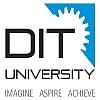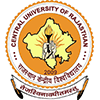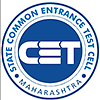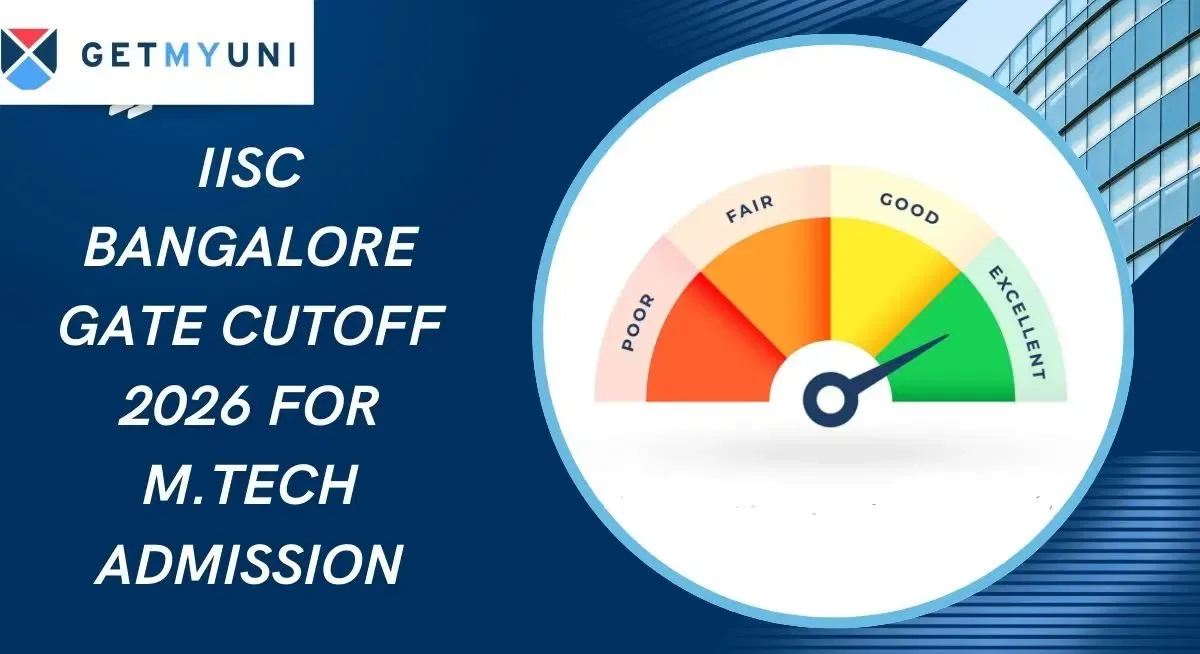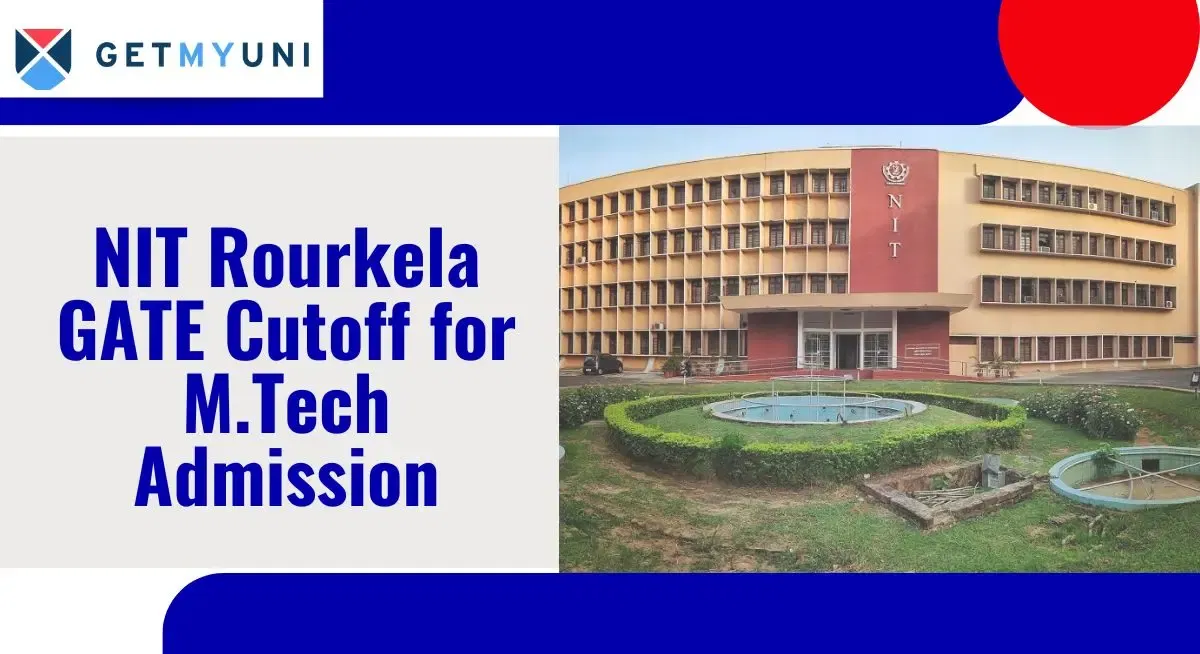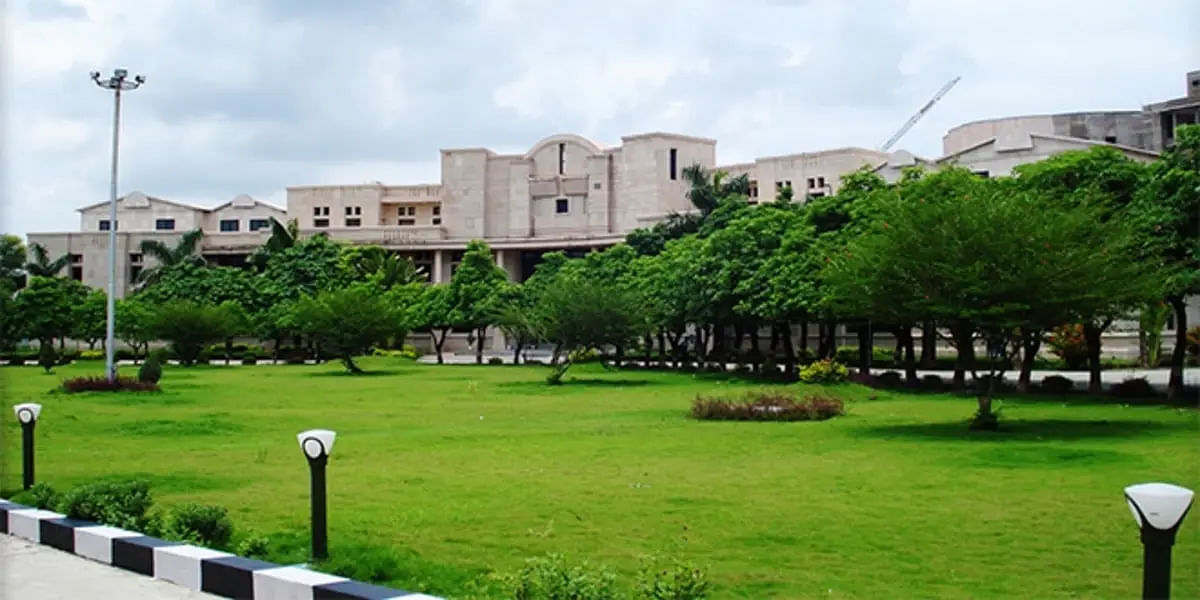The GATE Agricultural Engineering syllabus 2025 includes topics such as Farm Machinery, Farm Power, Soil and Water Conservation Engineering, Irrigation and Drainage Engineering, Agricultural Processing Engineering and more.
GATE Agricultural Engineering syllabus 2025 covers topics from Engineering Mathematics, Farm Machinery, Farm Power, Soil and Water Conservation Engineering, Irrigation and Drainage Engineering, Agricultural Processing Engineering, Dairy and Food Engineering.
The syllabus of GATE 2025 must be looked upon in detail by the candidates as it will give an overall view of the topics that will be covered in the test.
GATE Agricultural Engineering Syllabus 2025: Section-Wise
The GATE Agricultural Engineering syllabus consists of 7 sections. They are:
- Engineering Mathematics
- Farm Machinery
- Farm Power
- Soil and Water Conservation Engineering
- Irrigation and Drainage Engineering
- Agricultural Processing Engineering
- Dairy and Food Engineering
The above-given topics are the most important topics to be covered in the mode of study. Important sections in the GATE Agricultural Engineering syllabus, the relevant topics related to the sections and the subtopics to be included in the student's study are provided in the table below.
Quick Download Link:
| GATE Agricultural Engineering Syllabus | Download PDF |
Engineering Mathematics
The students can check the sub-topics of Engineering Mathematics in the pointers below.
Linear Algebra
- Matrices and Determinants
- System of Linear Equations
- Eigenvalues and Eigenvectors
Calculus
- Limit
- Continuity and Differentiability
- Partial Derivatives
- Maxima and Minima
- Sequences and Series
- Tests for Convergence
- Fourier Series
- Taylor Series
Vector Calculus
- Gradient
- Divergence and Curl
- Line, Surface and Volume integrals
- Stokes
- Gauss and Green’s theorems
Differential Equations
- Linear and Nonlinear First Order Ordinary Differential Equations
- Higher-order linear ODE’s with constant coefficients
- Cauchy’s and Euler’s Equations, Laplace Transforms, Partial Differential Equations- Laplace, heat and wave equations
Probability and Statistics
- Mean, median, mode and standard deviation
- Random variables
- Poisson, normal and binomial distributions
- Correlation and regression analysis
- Tests of significance
- Analysis of Variance (ANOVA)
Numerical Methods
- Solutions of linear and nonlinear algebraic equations
- Numerical Integration- Trapezoidal and Simpson’s rule
- Numerical solutions of ODE
Also Read: GATE Engineering Sciences Syllabus 2025
Farm Machinery
The students can check the sub-topics of farm machinery in the pointers below.
Machine Design
- Design and selection of machine elements
- Overload safety devices used in farm machinery
- Measurement of force, torque, speed, displacement and acceleration on machine elements
Farm Machinery
- Soil Tillage
- Forces acting on a tillage tool
- Hitch systems and hitching of tillage implements
- Functional requirements
- Principles of working, construction, and operation of manual, animal and power operated equipment for tillage, sowing, planting, fertilizer application.
- Testing of agricultural machinery and equipment
- Calculation of performance parameters- field capacity, efficiency, application rate and losses, cost analysis of implements and tractors.
Farm Power
The students can check the sub-topics of farm power in the pointers below.
Sources of Power
- Sources of power on the farm- human, animal, mechanical, electrical, wind, solar and biomass.
Farm Power
- Thermodynamic principles of I.C. Engines
- I.C Engine cycles
- Engine components
- Fuels and combustion
- Lubricants and their properties
- I.C Engine systems- fuel, cooling, lubrication, ignition, electrical, intake and exhaust
- Selection, operation, maintenance and repair of I.C engines
- Power efficiencies and measurements
- Calculation of power, torque, fuel consumption, heat, load and power losses.
Also Read: GATE Architecture and Planning (AR) Syllabus 2025
Tractors and Power tillers
- Type, selection, maintenance and repair of tractors and power tillers
- Tractor clutches and brakes
- Power transmission systems- gear trains, differential, final drives and power take-off
- Mechanics of tractor Chassis
- Traction theory
- Three-point hitches- free link and restrained link operations
- Mechanical steering and hydraulic control systems used in tractors
- Tractor tests and performance
- Human engineering and safety in the design of tractor and agricultural implements.
Soil and Water Conservation Engineering
The students can check the sub-topics of soil and water conservation Engineering in the pointers below.
Fluid Mechanics
- Ideal and real fluids
- Properties of fluids
- Hydrostatic pressure and its measurement
- Hydrostatic forces on plane and curved surface
- Continuity equation
- Bernoulli’s Theorem
- Laminar and turbulent flow in pipes
- Darcy- Weisbach and Hazen-Williams equations
- Moody’s diagrams
- Flow-through orifices and notches
- Flow in open channels
Soil Mechanics
- Engineering properties of soils
- Fundamental definitions and relationships
- Index properties of soils
- Permeability and seepage analysis
- Shear strength
- Mohr’s circle of stress, active and passive earth pressures
- Stability of slopes
Hydrology
- Hydrological cycle and its components
- Meteorological parameters, their measurement and analysis of precipitation data
- Runoff estimation
- Hydrograph analysis
- Unit Hydrograph theory and application
- Streamflow measurement
- Flood routing
- Hydrological reservoir and channel routing
Surveying and Leveling
- Measurement of distance and area
- Instruments for surveying and levelling
- Chain surveying
- Methods of traversing
- Measurement of angles and bearings
- Plane table surveying
- Types of levelling
- Theodolite traversing
- Contouring
- Computation of areas and volume
Irrigation and Drainage Engineering
The students can check the sub-topics of irrigation and drainage Engineering in the pointers below.
Soil-Water-Plant Relationship
- Mechanics of soil erosion
- Soil erosion types
- Wind and water erosion
- Factors affecting erosion
- Soil loss estimation
- Biological and engineering measures to control erosion
- Terraces and bunds
- Vegetative waterways
- Gully control structures
- Drop, drop inlet and chute spillways
- Earthen dams
Irrigation water conveyance and application methods
- Design of irrigation channels and underground pipelines
- Irrigation scheduling: surface, sprinkler and micro-irrigation methods
- Design and evaluation of irrigation methods
- Irrigation efficiencies
Agricultural Drainage
- Drainage coefficient
- Planning, design and layout of surface and subsurface drainage systems
- Leaching requirement and salinity control
- Irrigation and drainage water quality and reuse
Groundwater Hydrology
- Groundwater occurrence: Darcy’s law, steady flow in confined and unconfined aquifers, evaluation of aquifer properties
- Groundwater recharge
Wells and Pumps
- Types of wells
- Steady flow through wells
- Classification of pumps
- Pump characteristics
- Pump selection and installation
Agricultural Processing Engineering
The students can check the sub-topics of agricultural processing Engineering in the pointers below.
Drying
- Psychrometry- properties of air vapours mixtures
- Concentration and drying of liquid fluids
- Hydrothermal treatment
- Drying and milling of cereals
- Pulses and oilseeds
Size reduction and conveying
- Mechanics and energy requirement in size reduction of granular solids
- Particle size analysis for comminuted solids
- Size separation by screening
- Fluidization of granular solids
- Cleaning and grading
- Effectiveness of grain cleaners
Processing and by-product utilization
- Processing of seeds, spices, fruits and vegetables
- By-product utilization from processing industries
Storage systems
- Controlled and modified atmosphere storage
- Perishable food storage, godowns, bins and grain silos
Dairy and Food Engineering
The students can check the sub-topics of dairy and food Engineering in the pointers below.
Heat and mass transfer
- Steady-state heat transfer in conduction, convection and radiation
- Transient heat transfer in simple geometry
- Working principles of heat exchangers
- Diffusive and convective heat transfer
- Sorption and desorption isotherms
Preservation and food
- Kinetics of microbial health- pasteurization and sterilization of milk and other liquid foods
- Preservation of food by cooling and freezing
Also Read: Important & High Scoring Topics for GATE 2025
GATE General Aptitude Section Syllabus 2025
This section is mandatory for students who are taking the GATE Agricultural Engineering test.
- This section will consist of 10 questions out of which 5 questions will be of 1 mark and the remaining will be of 2 marks.
- The total number of marks in this section is 15 marks.
GATE Agricultural Engineering Exam Pattern 2025
Now that you know the GATE Agricultural Engineering syllabus, let us look at the GATE exam pattern of the test. The test will be a Computer Based Test and conducted through an online mode. There will be a total of 65 questions in the paper which will be split into 2 sections General Aptitude and subject-based.
Now we can look into the important topics, exam patterns and various other sections in this article.
- Mandatory Sections: General Aptitude Section
- Core Section: Agricultural Engineering section
| Sections | Total Marks |
| General Aptitude | 15 Marks |
| Subject-based section | 85 Marks |
Also Read: GATE Geomatics Engineering Syllabus 2025
GATE Agricultural Engineering Marking Scheme 2025
The total number of marks on this test is 100. We will guide you with the sections and total marks per section of the test.
- In General Aptitude, there will be 5 questions of 1 mark each and 5 questions of 2 marks each.
- In the subject-based section, there will be 25 questions of 1 mark each and 30 questions of 2 marks each.
Best Books for GATE Agricultural Engineering 2025
In this section, we will guide you with some of the best books for GATE that you can refer to while preparing for the GATE Agricultural Engineering syllabus. Have a look at the table below:
| Books | Authors |
| Soil and Water Conservation Engineering | R Suresh |
| Advanced Engineering Mathematics | Erwin Kreyszig |
| Principles of Agricultural Engineering volume 1 | Am Michael and T.P.Ojha |
| A Numerical Approach in Agricultural Engineering | Sanjay Kumar |
| Tractors and their power units | John B Liljedahl |
| Soil and water conservation Engineering | Richard K Frevert |
| Fundamentals of Food Engineering | D.G.Rao |
| Transport processes and Unit Operations | Christie Geankoplis |
| Theory of Machines | J.K.Gupta and R.S.Khurmi |
| Engineering Hydrology | K Subramanya |
Also Check: What is a Good GATE Score 2025?
Preparation Tips for GATE Agriculture Engineering Exam 2025
Students may be thinking about how much preparation should be done by them in order to crack the test. But there is no need to worry much about that. We will guide you with some preparation tips that will make your preparation task a lot easier. Have a look:
Solve Previous years question papers
- Solving GATE previous years questions papers will be of great use to you as most of the questions are repeatedly asked in every GATE Instrumentation exam.
- You will get a brief idea of the exam pattern and the type of questions asked while going through the previous years papers.
- So, practice as many question papers as possible as they will prove extremely useful to you.
Mock Tests
- Mock tests will help you in assessing your performance level.
- Solving GATE mock tests after each topic that you prepare will make you realise how much preparation you need to take on that particular topic.
- Solve as many mock tests as possible as it will keep track of your performance level and guide you on the weak areas that you will need to improve.
Also Check: Last Minute Preparation Tips for GATE 2025



